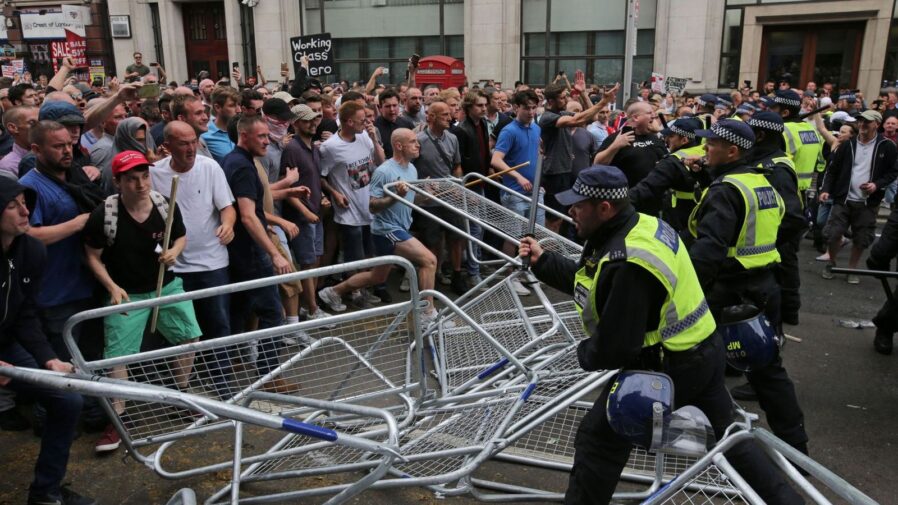

By KD Tait
At a time when the divisions between the far right, populist and mainstream political talking points are becoming increasingly blurred, the documentary Undercover: Exposing the Far Right is an important exposé that captures the way the modern far right blends big money, pseudo-science and street fighting to promote their agenda.
The film serves not only as an investigative piece but also as an alarm call for the working class to recognise and combat the growing threat posed by these dangerous ideologies.
The documentary follows a group of undercover journalists from the Hope Not Hate campaign who infiltrate various factions within the far-right movement, from the fascist Britain First party to more insidious outfits, like Aporia and the Human Diversity Foundation, that masquerade as respectable think-tanks.
The filmmakers follow the international links of the far right from English villages to the streets of Warsaw, via the far right riots in Charlottesville, USA, to expose strategies these groups employ to build a new far right movement. At the centre of these is the ‘Great Replacement Theory’, a conspiracy that alleges global Jewish elites are plotting to replace white populations with immigrants.
The film’s strength lies in the courageous undercover work that allows key figures of the far right to speak in their own words. The casual conversations among members, laced with white supremacist and misogynist statements, reveal the crude racism that underpins the modern far right, despite its claims to respectability.
The film shows how the fascist core of the far right has a coherent strategy: to make apparently unthinkable ideas, like mass deportation of immigrants, part of the mainstream political conversation.
At the top end, pseudo-scientific ‘race science’ serves to persuade ‘the elites’ that there is a ‘rational’ basis for their policies and, at the bottom, street fighting thugs carry out pogroms against refugees. But, as the film clearly demonstrates, they are all part of the same movement, sharing the same goal.
However, while the documentary excels in revealing the mechanics of far right movements, showcasing the important work done by Hope Not Hate’s journalists, it leaves the question of the resistance to these growing movements open.
Despite the jailing of dozens of far right and neo-Nazi activists, most recently Tommy Robinson, and the suppression of their organisations, the August riots show the far right is gaining influence. Tories, like Suella Braverman and Kemi Badenoch, now speak the language of the far right when it comes to refugees, trans people and reproductive rights.
Undercover: Exposing the Far Right is a powerful and urgent documentary that sheds light on the alarming rise of far right movements across the globe. As we witness the normalisation of extremist ideologies in mainstream politics, this film serves as an essential tool for understanding the tactics, motivations and consequences of such movements.
The time to act is now. Undercover provides a compelling impetus for us to do so.